
This year, funding fell from $10.5 billion in the first quarter down to the lowest funding has been at $4.6 billion today, according to a report from HealthcareDive.

This year, funding fell from $10.5 billion in the first quarter down to the lowest funding has been at $4.6 billion today, according to a report from HealthcareDive.
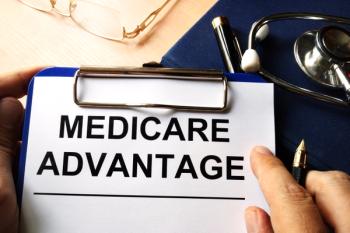
These areas in the new MA territory and existing ones can enjoy some of Cigna's new benefits this year.

The state's child uninsured rate dropped to 6.6% in 2021, its lowest level in recent history. This drop represents a 19% decline from a peak of 8.1% in 2018.

Cigna’s Express Scripts will now manage Centene’s pharmacy benefit services to make prescription medications more accessible and affordable for customers. The multi-year partnership is slated to officially begin Jan. 1, 2024.
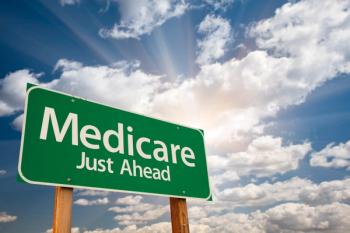
Three more cities join the 100-plus others that have endorsed the Medicare for All legislation. City Councils in Denver, Colorado, Gainesville, Florida, and Kent, Ohio passed the resolution in support of the universal program that ends for-profit healthcare.


Many prior authorizations requests still come in by fax. Natural language processing and artificial intelligence can extract and use information from faxes.
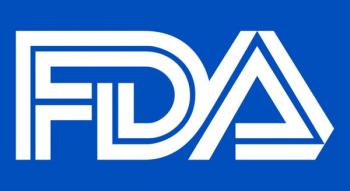
In COVID-19 news, the FDA issued an EUA for Novavax booster. The agency has extended review time for new ALS therapy and accepted a supplemental NDA for Camzyos. Additionlly, the FDA granted six months pediatric exclusivity for Eylea.

Patients and providers are having to pay more toward their health plans due to these common radiology services charging more than needed.
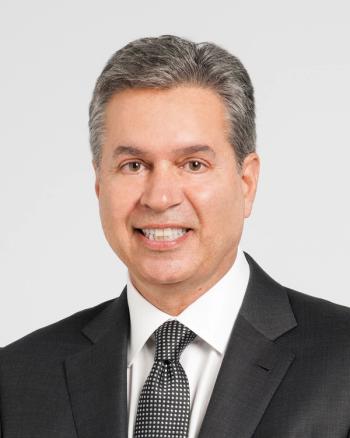
Managing Editor of Managed Healthcare Executive, Peter Wehrwein, speaks with President of Value Evolutions and MHE Editorial Advisory Board Member, Doug Chaet, FACHE, about value-based care's current standing and CMS value-based trends vs commercial payer trends.

Chester "Bernie" Good, senior medical director for the Center for Value Based Pharmacy Initiatives at UPMC Health Plan, gets in depth on value-based contracts and shares the results of the 2019 contract between UPMC and AstraZeneca for Brilinta. Good addressed value-based contracts last week at AMCP Nexus 2022 conference in National Harbor, Maryland.

In COVID-19 news, the FDA has authorized updated boosters for younger children. The FDA also approved an at-home heart failure therapy, but issued a CRL for a Parkinson’s therapy. The agency has assigned PDUFDA dates for several BLA, including a hemophilia A gene therapy and Eylea for retinopathy in premature infants. Regulators have also announced an Adderall shortage. Additionally, a nonprofit company has begun the application process for OTC version of naloxone.

EQRx has said it will price its PD-1/PDL-1 inhibitor 40% below the price of the entrenched PD-1/PDL-1 inhibitors, says Bhavesh Shah of Boston Medical Center Health System. But there are obstacles looming, including the development of combination therapies.

Julie Kendle, Director, Clinical Pharmacy Director, Clinical Pharmacy at IPD Analytics addresses tips on improving accumulators and ways for PBMs or payers to make their accumulator and maximizer programs more acceptable to patients. Kendle spoke at this year's AMCP Nexus meeting in National Harbor, Maryland.
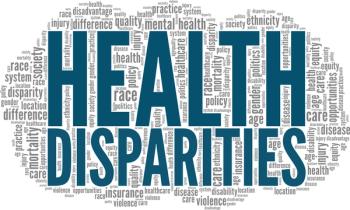

Research by Janssen shows that non-White patients are disproportionately affected by the accumulators and maximizers that PBMs use to blunt the financial consequences of copay assistance cards.
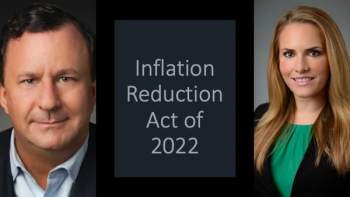
Marc Samuels and Lindsay Bealor Greenleaf of ADVI Health, LLC, say right now may not be the best time to move forward with this law as it could increase inflation through 2024. Samuels is CEO and founder of ADVI Health and is a member of MHE's editorial advisory board. Greenleaf is vice president and head of policy and reimbursement at ADVI.

Yuqian Liu, Pharm.D., and Michelle Booth, Pharm.D., of Magellan Rx Management, discuss the background and consequences of step therapy in Medicare Part B in an interview prior to their session at the AMCP Nexus 2022 meeting in National Harbor, Maryland.
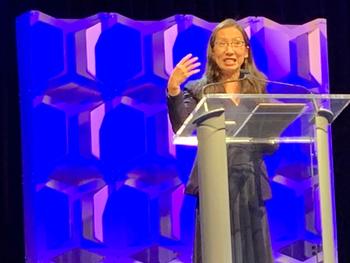
The former Baltimore city health commissioner has been criticized for some of her views on COVID-19 mandates. In her talk opening the AMCP Nexus 2022 meeting, Wen said that if public health officials don’t take into account public attitudes, it could affect the ability to deal with future public health emergencies.

Kevin Astle, Pharm.D., discussed on-demand HIV preexposure prophylaxis (PrEP), the advent of long-term injectables, and updated CDC guidelines at the AMCP Nexus 2022 meeting in National Harbor, Maryland.

The FDA uses real-world data to show how Boostrix prevents infections in infants. The agency also approves a label expansion for Oxlumo, a new administration method for Trogarzo, and accepts an sBLA for Takhzyro. In COVID-19 news, Eiger won’t submit EUA for COVID-19 treatment. Additionally, an OIG reports finds many accelerated approvals have delayed confirmatory trials.

Capital Blue Cross is teaming up with the drug company to assist its members on discount medications.

Tom Newcomer, head of U.S. market access for the maker of Humira biosimilar Hadlima, deflected questions on price but touted the drug’s track record overseas.

Tom Newcomer, head of U.S. market access for Samsung Bioepis, maker of Hadlima, a Humira biosimilar, said some potential customers want to see which biosimilars will grab a large market share before deciding on which one to buy

About 40% of people monkeypox also had HIV, according to a CDC study that included almost 2,000 monkeypox cases in the U.S. that occurred during the first two months of the outbreak.
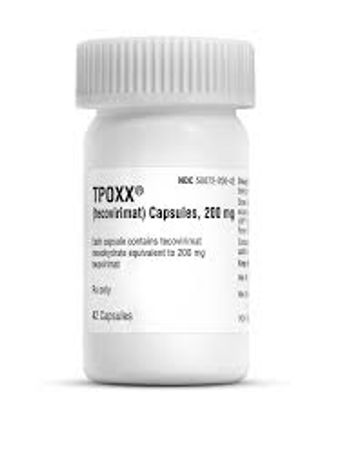
SIGA indicated that $5.1 million of oral Tpoxx is targeted for delivery in 2022.

People with HIV are more susceptible to getting COVID-19 and having a severe case. Researchers at the University of Miami Miller of School of Medicine are heading up an NIAID-funded study that will use artificial intelligence to observe the overlap of the two infectious diseases and the evolution new variants of the SARS-CoV-2 virus that causes COVID-19.

A real-world study of children with moderate-to-severe atopic dermatitis (AD) in China found Dupixent can reduce symptoms and improve pruritus. Traditional therapies had little effect, according to the researchers.

A sizable majority (69%) of eosinophilic esophagitis (EoE) patients only had one food trigger.

The majority of guidelines and recommendations available limit biologics to cases of severe and uncontrolled chronic rhinosinusitis with nasal polyps (CRSwNP) and require prior surgery.